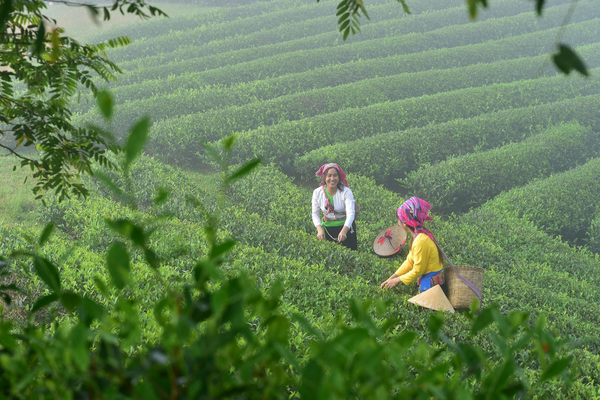The Role of Flavonoids in Human Health – By Dr Harold Gunatillake

Image Source : hthealthshots
Exploring the Antioxidant and Anti-Inflammatory Power of Phytochemicals Let us initially examine phytochemicals before investigating flavonoids. Phytochemicals are naturally occurring, bioactive compounds found in plants that may have beneficial effects on human health. Although they are not classified as essential nutrients, such as vitamins and minerals, they contribute to plant protection against diseases and potentially provide various health benefits to humans.

Flavonoids, a diverse and fascinating group of phytochemicals, have attracted intense scientific interest in recent decades. Present in vibrant abundance within fruits, vegetables, herbs, teas, and even red wine, these bioactive compounds give many plants their brilliant colours and are celebrated for their potential to influence human health significantly. Their antioxidant and anti-inflammatory properties, combined with their unique capacity to serve as cellular signalling molecules, have made flavonoids key players in the ongoing fight against chronic diseases.
What Are Flavonoids?
Flavonoids constitute a class of secondary metabolites in plants that belong to the broader category of polyphenolic compounds. They are extensively distributed across the plant kingdom, with more than 6,000 distinct flavonoids identified to date. These compounds are not synthesised by animal cells; consequently, the consumption of plant-based foods is essential for their intake.
Flavonoids are categorised into various subclasses based on their chemical structures. The principal categories include:
- Flavonols (present in onions, kale, and berries)
- Flavones (found in parsley, celery, and a variety of herbs)
- Flavanones (rich in citrus fruits)
- Flavanols (such as catechins present in tea, cocoa, and apples)
- Anthocyanins (responsible for red, blue, and purple pigmentation in berries, red cabbage, and grapes)
- Isoflavones (primarily found in soy products)
Each subclass demonstrates distinctive biological activities, thereby contributing to the wide-ranging health benefits associated with diets rich in flavonoids.
Antioxidant Properties of Flavonoids
- One of the most celebrated attributes of flavonoids is their antioxidant capacity.
- Total antioxidant capacity (TAC) represents a quantitative assessment of a substance’s or sample’s comprehensive ability to neutralise free radicals and mitigate oxidative It embodies the combined antioxidant efficacy of diverse compounds present within a system, including foodstuffs, biological fluids, or chemical solutions. TAC assays are employed to evaluate the overall antioxidant potential of a sample and are instrumental in elucidating its prospective health benefits and oxidative stress condition.
- Oxidative stress, resulting from an imbalance between the production of reactive oxygen species (ROS) and the body’s ability to neutralise them, plays a central role in the ageing process and the development of chronic diseases, including cancer, cardiovascular disease, and neurodegenerative Flavonoids combat oxidative stress in several ways:
- Direct Scavenging of Free Radicals: Flavonoids can neutralise ROS by donating electrons, thereby preventing these highly reactive molecules from damaging cellular lipids, proteins, and • Metal Chelation: Certain flavonoids can bind to pro-oxidant metal ions (e.g., iron and copper), reducing their ability to catalyse the formation of harmful radicals. • Regeneration of Other Antioxidants: Some flavonoids help regenerate antioxidants such as vitamin C (ascorbate) and vitamin E (tocopherol), enhancing the overall antioxidant defence system.
By protecting cellular structures from oxidative damage, flavonoids play a crucial role in maintaining cellular integrity and function.
Anti-Inflammatory Mechanisms
Inflammation is a biological response to injury or infection; however, chronic, low-grade inflammation is implicated in the pathogenesis of various diseases, including atherosclerosis, diabetes, and certain types of cancer. Flavonoids possess potent anti-inflammatory properties and can modulate inflammatory pathways at multiple levels.
Key anti-inflammatory actions include:
- Inhibition of Enzyme Activity: Flavonoids can inhibit cyclooxygenase (COX) and lipoxygenase (LOX), enzymes involved in the synthesis of inflammatory mediators, including prostaglandins and
- Suppression of Cytokine Production: Consumption of flavonoid-rich foods has been shown to lower the levels of pro-inflammatory cytokines (e.g., TNF-α, IL-6) in both experimental and clinical settings.
- Modulation of Transcription Factors: Flavonoids interfere with the activity of nuclear factor- kappa B (NF-κB), a key transcription factor that orchestrates the expression of genes involved in inflammation.
Through these mechanisms, flavonoids help maintain a balanced immune response and protect tissues from the harmful effects of chronic inflammation.
Cell Signalling and Regulation of Cell Growth
In addition to their functions as antioxidants and anti-inflammatory agents, flavonoids serve as signalling molecules within the human body. They interact with diverse cellular proteins and enzymes, thereby modulating essential pathways involved in cell proliferation, differentiation, and apoptosis (programmed cell death). These signalling effects are integral to the role of flavonoids in disease prevention.
Notable effects include:
- Regulation of the Cell Cycle: Flavonoids can induce cell cycle arrest in abnormal or malignant cells, thereby preventing uncontrolled cellular
- Promotion of Apoptosis: They can initiate apoptosis in damaged or pre-malignant cells, thus eliminating potential threats before tumour development.
- Inhibition of Angiogenesis: Flavonoids may inhibit the formation of new blood vessels (angiogenesis) that supply growing tumours, thereby restricting their growth and
These properties render flavonoids promising candidates for the prophylaxis and adjunctive therapy of various cancers.
Prevention of Chronic Diseases
A growing body of epidemiological and clinical evidence suggests that diets rich in flavonoids are associated with a reduced risk of various chronic diseases.
Cardiovascular Disease
Flavonoids have been demonstrated to enhance endothelial function, lower blood pressure, inhibit platelet aggregation, and reduce the oxidation of LDL cholesterol. Consistent intake of flavonoid-rich foods—such as berries, apples, and green tea— correlates with decreased incidence of myocardial infarction and stroke.
Cancer
The chemopreventive effects of flavonoids are attributed to their ability to neutralise carcinogens, inhibit tumour development, and enhance DNA repair processes. Populations with a high dietary intake of flavonoids generally demonstrate lower incidence rates of particular cancers, notably those affecting the gastrointestinal tract, breast, and prostate.
Neurodegenerative Disorders
Flavonoids potentially serve a protective function for the brain against age-related decline by mitigating oxidative stress, improving cerebral blood flow, and modulating signalling pathways associated with learning and memory. Recent research indicates that increased consumption of flavonoids correlates with a reduced risk of cognitive impairment and neurodegenerative diseases such as Alzheimer’s and Parkinson’s.
Metabolic Syndrome and Diabetes
By enhancing insulin sensitivity and reducing inflammation, flavonoids can contribute to the reduction of components associated with metabolic syndrome, including obesity, hypertension, and dyslipidemia. Specific flavonoids, particularly those present in citrus fruits and cacao, have demonstrated potential in regulating blood glucose levels and preventing type 2 diabetes.
Dietary Sources and Recommendations
To harness the health benefits of flavonoids, it is essential to consume a variety of fruits and vegetables on a daily basis. Rich sources include:
- Berries (blueberries, strawberries, blackberries)
- Citrus fruits (oranges, grapefruits, lemons)
- Apples and pears
- Grapes and red wine (in moderation)
- Leafy greens (spinach, kale, parsley)
- Onions and leeks
- Tea (green, black, and oolong)
- Cocoa and dark chocolate
- Soybeans and soy products
There is no official recommended dietary allowance (RDA) for flavonoids; however, health authorities generally agree that increasing the proportion of plant-based foods in the diet is beneficial for overall well-being.
Conclusion
Image Source : forestry.com
Flavonoids, abundant in a colourful array of plant-based foods, are more than just nature’s palette; they are integral to human health, offering powerful antioxidant, anti-inflammatory, and cell-regulatory actions. By incorporating a variety of fruits, vegetables, teas, and legumes into our daily diets, we can harness the protective potential
of these remarkable phytochemicals and take proactive steps towards preventing chronic disease. As science advances, flavonoids will undoubtedly remain at the forefront of nutritional research, promising a healthier future rooted in the gifts of the natural world.
End






















